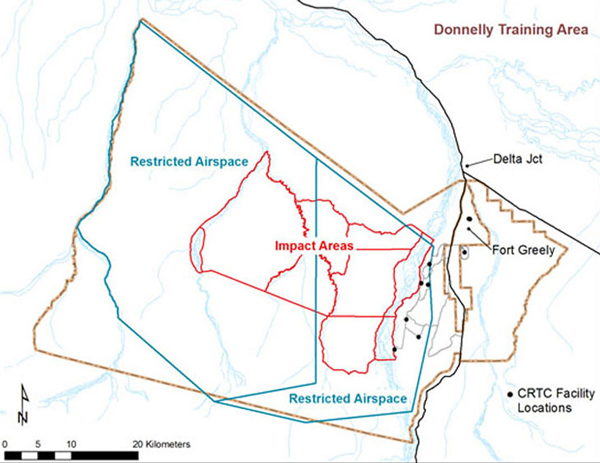
City and borough government officials here in Alaska are a bit on edge about Congress’s failure to provide funding for the PILT program, which helps local governments with a lot of federal land in their areas. The program is especially critical to smaller communities like Delta Junction.
Local governments can’t impose property taxes on federal land. So, since the late 1970s, the federal government has been paying counties around the country – or boroughs here in Alaska – to compensate them for revenues that they otherwise could’ve generated through property taxes on that land.
That’s the PILT program – it stands forPayments in Lieu of Taxes. It’s not a big program, by federal standards – it totals about $400 million this fiscal year, of which Alaska would get about $27 million.
But Delta Junction Mayor Pete Hallgren says it’s very important for small communities like his, which gets most of its revenue from PILT.
“We’re looking at somewhere close to two-thirds of our income is from the federal PILT,” Hallgren said. “So you can see that the PILT is extremely important to the city.”
But Delta, which is flanked on the south and west by Fort Greely and Army trainingranges, may not receive the $930,000 or so that it’s slated to get from PILT this year. Because, Congress did not include funding for the program in the big omnibus spending package it passed last week.
That’s worries local government officials around the state, including Denali BoroughMayor Clay Walker. He says his borough will lose about a tenth of its revenues if it doesn’t receive the $300,000 that it was scheduled to get through PILT this year.
“Boy, the idea of 10 percent of your budget just getting whacked with no advance notice or planning is just a tough one to swallow,” Walker said.
Walker says the Denali Borough Assembly passed a resolution earlier this month calling on Congress to fund the program. He says the borough counts on PILT to supplement emergency services and solid-waste disposal. It provides those services to both the borough and facilities in the adjacent 6-million-acre Denali National Park.
The Fairbanks North Star Borough stands to lose only about $400,000 if Congress fails to fund PILT. But Mayor Luke Hopkins says the borough is already making painful budget cuts. And borough officials don’t want to ask borough taxpayers to fill a gap created by the lack of PILT revenue.
“Payment in Lieu of Taxes is certainly an important program,” he said, “And we don’t want to see it expire.”
Hopkins says this isn’t the first time that Congress has been slow in funding PILT. The degree of partisan budget battling of the past few years, however, makes this delay disconcerting.
“But this is – this one is getting down really close to the wire,” he said.
The uncertainty is especially worrisome because local governments must soon begin working in earnest on the next fiscal year’s budget.
U.S. Sen. Mark Begich says he’s optimistic about the chances of Congress restoring funding for PILT, because it appears to have bipartisan support.
“This is not a partisan issue,” Begich said. “This is about fairness, when the federal government has possession of so much acreage within Alaska, they need to pay for some of these services.”
Begich says members of a House-Senate conference committee that’re working on the Farm Bill have resolved almost all of their differences, and will send the bill back to each house soon. He expects the Senate will then act quickly to work out remaining differences and approve the measure when lawmakers return to Washington next week.
“We have and I have advocated to get this up on the floor of the Senate in short order, because I think we’re close enough that we can resolve these issues,” he said.
Begich says the Farm Bill will also, of course, help Alaska’s agricultural industry. And he says there’s funding for water and sewer systems, as well.
Tim Ellis is a reporter at KUAC in Fairbanks.




